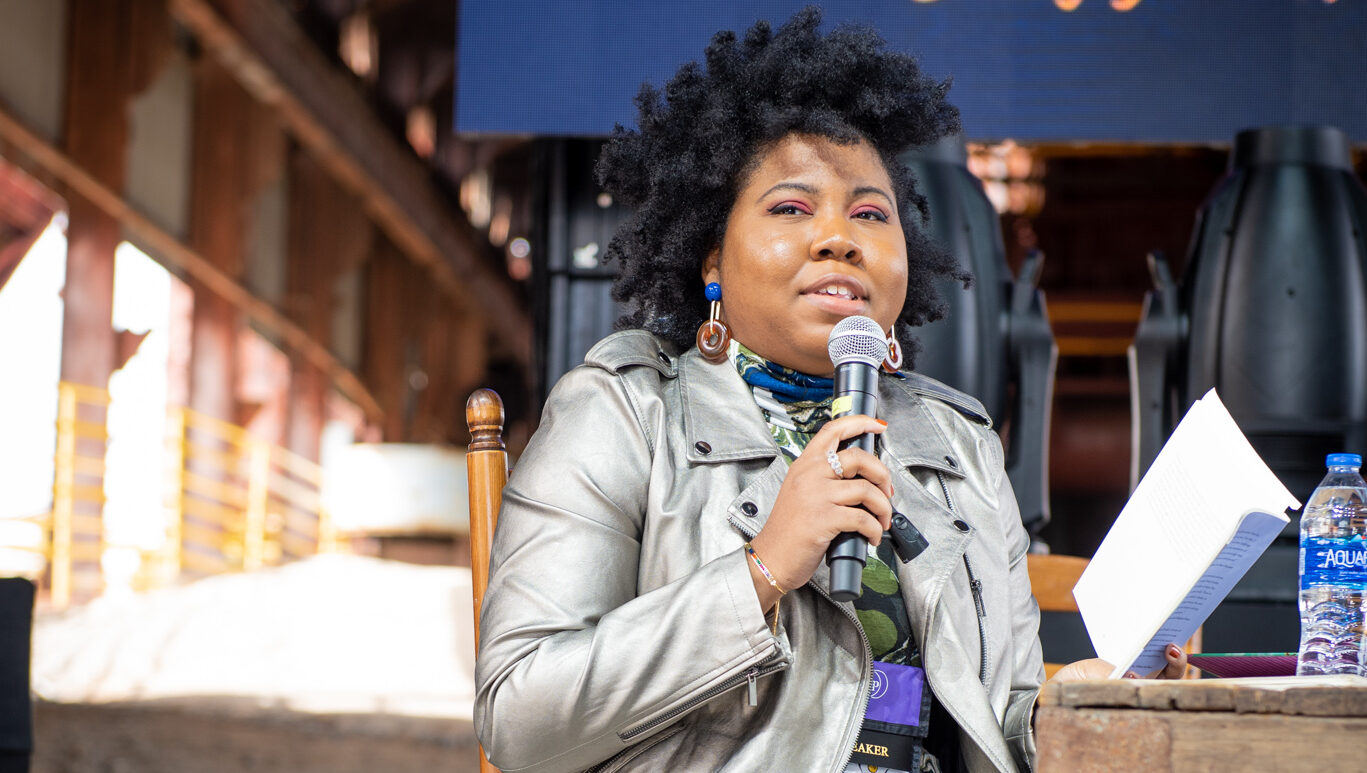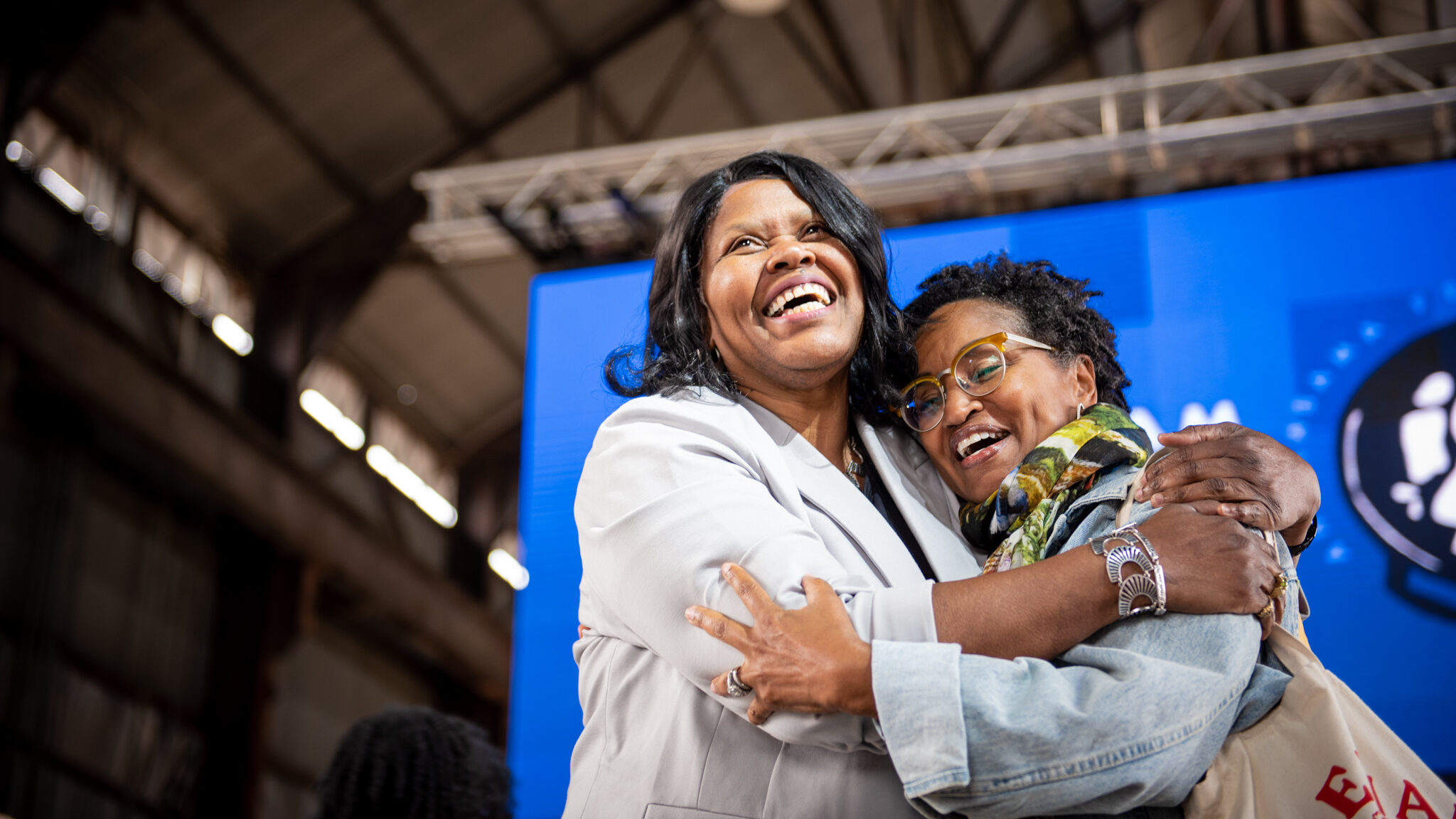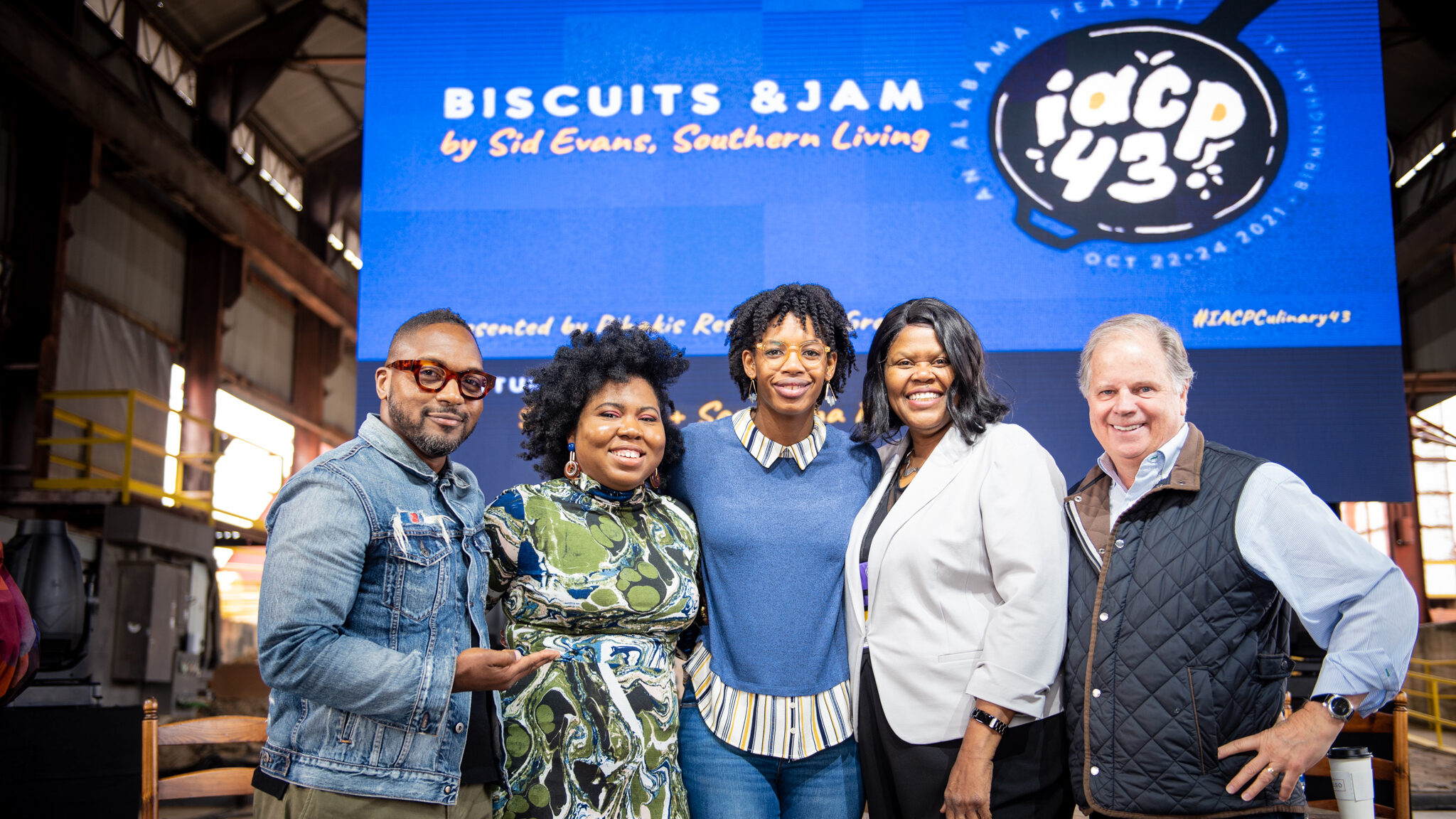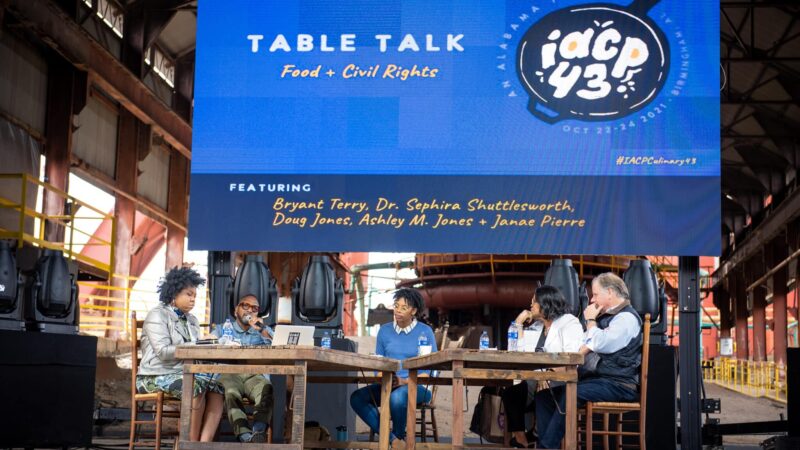Culinary professionals eat up discussion on food and civil rights
IACP's Table Talk session on food and civil rights featuring (from left to right) Ashley M. Jones, Bryant Terry, Janae Pierre, Sephira Shuttlesworth and Doug Jones.
When you think about the intersection of the food and the civil rights movement, you may think of sit-ins at lunch counters or bake sales that funded boycotts. But the relationship between food and civil rights goes much deeper.
In late October, WBHM’s Janae Pierre moderated what was called a “Table Talk” session on that topic during the International Association of Culinary Professionals’ (IACP) conference in Birmingham. Here is her reporter’s notebook from that event.

Andi Rice,Mediaworks
The audience listens attentively during IACP’s Table Talk session on food and civil rights.
The train whistled and the wind howled as hundreds filled the casting shed at Sloss Furnaces that morning. It may have been chilly outside but before the discussion began, chef, food justice activist and author Byrant Terry took us into the warmth of his grandmother’s kitchen as he sang, “Glory, glory, hallelujah, since I lay my burdens down.”
His grandmother would sing that song as she prepared Sunday dinners.
Terry was joined on the panel by Sephira Shuttlesworth, the widow of Birmingham civil rights leader Reverend Fred Shuttlesworth. Also Alabama poet laureate Ashley M. Jones, and former U.S. Senator Doug Jones (no relation). Doug Jones admitted he’s a little out of place on the panel.
“I’m really happy to be here although, number one, I don’t sing, number two, I don’t do poetry. Umm, I love food,” he said.
Everyone at the event had a love for food, including myself. When asked to lead the discussion on food and civil rights, I immediately thought about the state of Alabama and its painful past; from lynchings to Bloody Sunday where hundreds of Black people were beaten by state troopers in the march from Selma to Montgomery. Plus, all the turbulent events, like the Children’s Crusade, that occurred in Birmingham, which Doug Jones called the epicenter of the civil rights movement.
“You can talk about Montgomery, you can talk about Albany, you can talk about Memphis, and events happened there, but for Birmingham,” he said. “And more importantly, all of those kids who took to the streets, the youth of this city who took the brunt of that, the fire hoses and the dogs, they are the ones that really were the heroes, in my view of the movement.”
The movement needed healing to press on through the pain and trauma. For most in the fight, that came in the form of a good meal, both literally and figuratively.
“Being fed doesn’t just mean by food, of course, spiritually fed,” said Ashley M. Jones.

Andi Rice,Mediaworks
Ashley M. Jones shares a poem during IACP’s Table Talk session on food and civil rights.
“I think we are always feeding each other and finding ways to survive. There is so much trauma. The trauma that we live through is so difficult. It’s hard to find sustenance to make it to the next day. So, we have always found a way to feed each other,” she said.
For Black people in Alabama, Jones said, that trauma was heightened during the civil rights movement and it still stings today.
Sephira Shuttlesworth recalled that, back then, Black women in the kitchen brought comfort to the bellies of those beaten, physically and mentally, during the fight for equality.

Andi Rice,Mediaworks
Sephira Shuttlesworth greets an IACP attendee during the conference’s Table Talk session on food and civil rights.
“We’ve healed many a sores, many a deep cut in those kitchens … blackberry cobbler, squash and onions, pork chops with gravy smothered,” she said. “Black women in the kitchen. We took those burdens and we made something of them. We took what was left over and we made something of it.”
Shuttlesworth continued to fire up the crowd with her menu of comfort food born from hardship. And Doug Jones could relate. Though he admitted his life is one of white privilege, he’s had plenty of “soul feeding” moments with Black families. The message this day was that progress in the South rests in the homes of Black women.
As the discussion wrapped up, the train whistled again and Shuttlesworth began singing an old spiritual.
“I’m gonna lay down my burden, down by the riverside,” she sang.
The moment felt poetic. The images endure of sit-ins at lunch counters and civil rights leaders strategizing at meat-and-threes. But food’s full contribution to the civil rights movement was one giving people the strength to keep going while offering a balm to the soul.

Andi Rice,Mediaworks
(From left to right) Bryant Terry, Ashley M. Jones, Janae Pierre, Sephira Shuttlesworth, Doug Jones at the IACP Conference in Birmingham.
Auburn tabs USF’s Alex Golesh as its next coach, replacing Hugh Freeze on the Plains
The 41-year-old Golesh, who was born in Russia and moved to the United State at age 7, is signing a six-year contract that averages more than $7 million annually to replace Hugh Freeze. Freeze was fired in early November after failing to fix Auburn’s offensive issues in three seasons on the Plains.
Alabama Power seeks to delay rate hike for new gas plant amid outcry
The state’s largest utility has proposed delaying the rate increase from its purchase of a $622 million natural gas plant until 2028.
Former U.S. Sen. Doug Jones announces run for Alabama governor
Jones announced his campaign Monday afternoon, hours after filing campaign paperwork with the Secretary of State's Office. His gubernatorial bid could set up a rematch with U.S. Sen. Tommy Tuberville, the Republican who defeated Jones in 2020 and is now running for governor.
Scorching Saturdays: The rising heat threat inside football stadiums
Excessive heat and more frequent medical incidents in Southern college football stadiums could be a warning sign for universities across the country.
The Gulf States Newsroom is hiring an Audio Editor
The Gulf States Newsroom is hiring an Audio Editor to join our award-winning team covering important regional stories across Mississippi, Alabama and Louisiana.
Judge orders new Alabama Senate map after ruling found racial gerrymandering
U.S. District Judge Anna Manasco, appointed by President Donald Trump during his first term, issued the ruling Monday putting a new court-selected map in place for the 2026 and 2030 elections.









